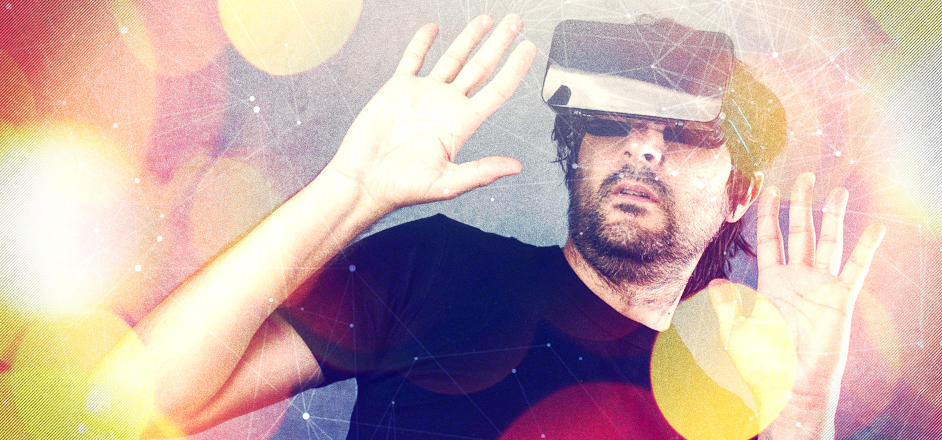Scared of spiders? Scared of heights? Scared of balloons?
One in four people suffer from a phobia.
There are treatments. But could a new technology aimed at overcoming fears make them worse?
That's what some researchers are saying about virtual reality therapy for phobias.
Virtual reality is the new version of a popular treatment called exposure therapy.
A giant pile of scientific papers support virtual reality as a treatment for everything from fear of flying to geriatrics' fear of injury. In one study, for example, two dozen people were prodded to slowly move toward a virtual spider. After exposure, 83 percent saw their fear of spiders shrink, and, in real life, some discovered they could be around an actual tarantula with only a smidge of anxiety.
A number of centers have popped up, from San Diego to North Carolina, to do this work. Matt Vogl is the Executive Director of a clinic at the University of Colorado's Anschutz Medical Campus which uses the virtual reality platform Limbix to carefully guide you through scary shit. They can virtually put someone on stage at a speaking engagement and make the audience snicker, Vogl said, triggering fears.
Next thing you know, you're blabbing in real life at the next TEDx.
Virtual reality for phobias has gotten so popular that a few companies, including Samsung and Oculus Rift, have created games to let you do scary stuff at home on your own.
But Vogl has criticisms. He said it's dangerous to do on your own.
One simple danger is falling. YouTube is full of cautionary tales. For example:
Vogl called out Samsung for letting players just dive into experiences that might do more than bruise them; it might mentally scar them.
"Despite what we've been taught, throwing people into the deep end of the pool is not the best way to teach them how to swim," said Vogl. "In the same way, dropping someone off a building is not how you treat someone for acrophobia."
Vogl said careless virtual reality simulations can make people more scared than they were before.
Another example: does this person below look like they're getting over their fears?
Samsung didn't respond to an interview request.
I tried to face my fear of heights at HeadGamesVR in Lakewood, Colorado. I tried an HTC Vive and shook with fear while tiptoeing on a plank hanging off a 40-story building — and felt my stomach drop as I "fell." I'm not sure it was good for me.
Robert Ottinger, co-founder of Reality Garage, a virtual reality startup in Boulder, watches players walk the plank.
"There's some people that just won't get out" on the plank, Ottinger said. Even though they know it's fake, they freeze up.
In the end, virtual reality can help you be fearless. On your own, it might make you fall on your face. Watch:



Leave a Reply
You must be logged in to post a comment.